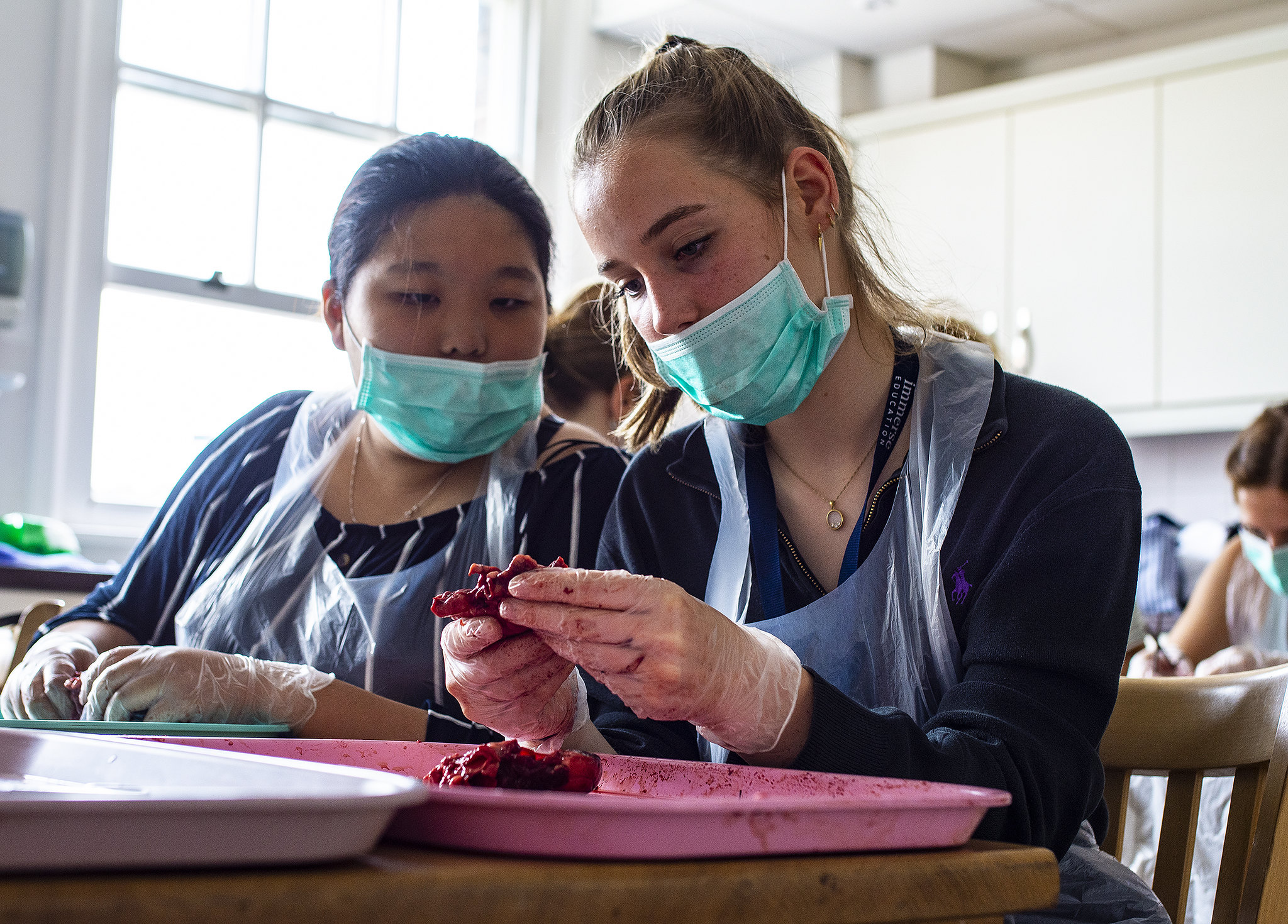Biology Summer School

Unparalleled academic programmes
Biology
The best thing in Immerse must be my biology lecturer; the tutor was very helpful and responsible and he imparted knowledge clearly.


About the Immerse Biology Summer School
The Biological Sciences represent some of the most fascinating research that encompasses some of the world’s most pressing issues – from ecological destruction to biomechanics and the rise of superbugs, biology is a fascinating subject that intersects many different sciences and even unrelated disciplines. Our Biology Summer School will allow you to explore different topics in biology that will not only improve your current understanding of the discipline, it will also highlight some of the most fascinating aspects of Biology.
More than that, our summer schools focus not only on delivering fascinating content but on improving your skills. If you want to learn how to be an excellent scientist, you’ve made a great start by choosing a biology summer course with Immerse.

Our Affiliate Partnership with the Royal Society of Biology
Our Partnership with the Royal Society of Biology highlights our commitment to Biology as a science and as an academic field of study. We are committed to supporting the aims of the Royal Society of Biology.
As part of our partnership we will be enrolling all Immerse biology students as individual members of the Royal Society of Biology, this provides students’ with a print subscription to The Biologist magazine (published four times a year), access to supplementary online content, and online archive to support their studies.
Frequently Asked Questions
What is biology? The word “bio” means “life.” How about “logy”? It means “study of.” So putting them together and you have biology, the study of life.
In biology, you’ll learn all about living organisms. What type of living organisms, you ask? Everything from humans to viruses. You’ll look at organisms’ anatomy, physiology, and chemistry. Plus, you’ll see how they interact with each other and the environment.
Why is it important to study biology?
Because it helps you appreciate life in different shapes and sizes. And you’ll begin to see the interconnectivity that exists among organisms. Everything we do affects another.
This awareness is especially crucial in the 21st century. Where do we set the limit in an age where human progress encroaches on the environment? How can we make planet earth conducive for everyone?
In the UK, the Science Industry Partnership claims that the demand for science technical level staff will be 4,000 to 6,000 yearly for the next decade.
However, if you wanted to head to the US. According to the US Bureau of Labor Statistics, 3,107,000 work in Biology-related fields. With a median salary of $65,000.
What are the top careers for individuals holding a biology degree?
These are healthcare practitioners and technical occupations; management occupations; life, physical, and social science occupations; educational instruction and library occupations; and business and financial operations occupations.
Immerse Education offers both online and residential courses for Biology. The residential course for Biology is for students aged 16-18 and they stay at Cambridge University colleges, UK.
Macromolecules of Life
The macromolecules of life include Proteins, Carbohydrates, and Nucleic acids. What role do they play in living organisms? And what are their components? You’ll explore the answer to these questions in this module. Plus, you’ll learn about membrane transport, cell signalling, and cell-cell recognition.
Cell Theory and Cell Structure
Did you ever wonder who invented microscopes? And who first used them to discover cells? In this session, you’ll know some early pioneers of microscopy (Hooke and Leeuwenhoek.) Then you’ll find out how they contributed to the Cell Theory.
Do you know that there are two fundamental cell types? That’s right. The Prokaryotic and Eukaryotic cells. What are their key differences? And what are cell organelles and their functions in a eukaryotic cell? By the end of this lesson, you can quickly answer these questions.
Principles Of Bioinformatics
What’s bioinformatics? Bioinformatics is the science of gathering and analysing biological data (e.g. DNA). It uses concepts from biology, mathematics, computer science and statistics. Because of bioinformatics, mapping the entire human genome became a reality. From that came tremendous progress in molecular medicine.
The Immerse Education residential Biology course is best for motivated students ages 16-18. Do you want to take a life science degree at the university? This course will give you a boost ahead of your competition.
If you want to be taught by world-class tutors from top universities such Cambridge and Oxford, don’t let this opportunity pass!




